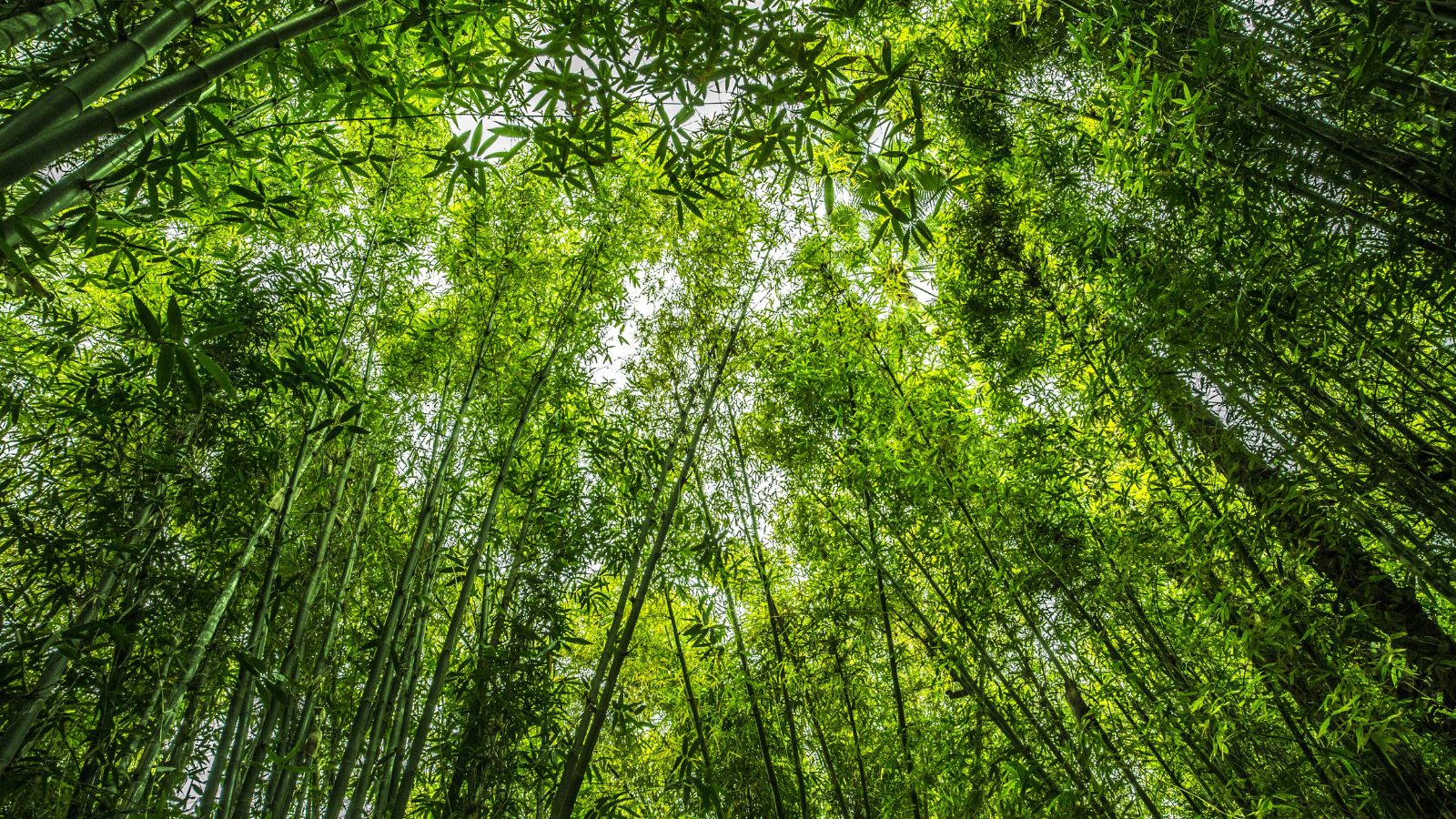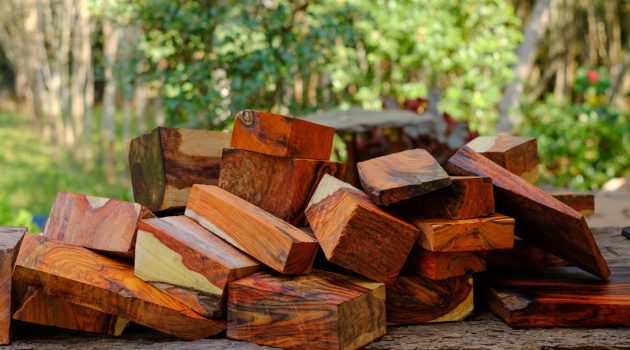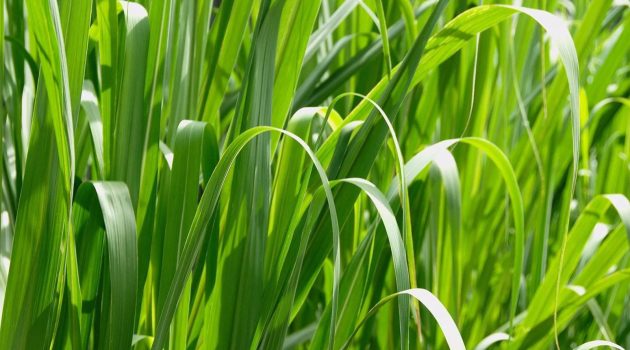Bamboo, a plant that is often associated with tranquility and natural beauty, also comes with a distinctive scent profile that might capture your interest.
If you were to take a stroll through a bamboo grove, you would likely notice a fresh and somewhat earthy scent.
This fragrance varies slightly from species to species, but generally, bamboo gives off a clean, grassy, and woody aroma.
Some bamboos can even have a faint sweet or nutty aspect to their scent. The strength and exact character of the smell may depend on environmental factors and the age of the bamboo.
Beyond the natural environment, bamboo’s fragrance has been bottled and blended into a variety of products.
In the realm of perfumery, bamboo is used for its crisp and refreshing notes that can complement floral, citrus, and herbaceous components.
The essence of bamboo brings a calm and soothing dimension to fragrances, often evoking a sense of cleanliness and rejuvenation.
So, when you encounter bamboo in scented products, such as candles or air fresheners, expect to experience the calming effects of its unique and clean fragrance.
Key Takeaways
- Bamboo emits a fresh, earthy scent with possible sweet or nutty undertones.
- The fragrance of bamboo is leveraged in perfumery for its refreshing and calming qualities.
- Scented products containing bamboo aim to evoke cleanliness and tranquility.
1. The Essence of Bamboo
Your journey into the world of bamboo’s fragrance starts here, as you discover a scent that is at once invigorating and an epitome of nature’s freshness.
Identifying Bamboo Aroma
What You’ll Smell: When you take in the scent of bamboo, you’re likely to notice a fresh, green, and crisp aroma.
Think of bamboo as nature’s own air freshener, offering you a breath of the outdoors. The earthy and woody undertones complement the freshness, creating a scent profile that is complex yet harmonious.
- Primary notes: green, earthy
- Secondary notes: woody, grassy
Herbal Accents: Amidst these primary scents, you might also detect subtle herbal nuances.
Depending on the type, a bamboo’s aroma could weave in faint hints of cool herbs like mint, adding layers to its olfactory bouquet.
Variations by Species
Each bamboo species carries its unique fragrance, making the experience of smelling bamboo a personalized encounter.
Here’s a brief look at the scents of two popular bamboo species:
- Moso Bamboo: This species often presents a pronounced fresh and grassy aroma. Imagine a grassy field on a dewy morning—that’s the essence of Moso bamboo.
- Black Bamboo: Contrary to its name, the scent of black bamboo doesn’t wander far off the green spectrum. Instead, it offers a more subtle fragrance, with earthy, sometimes nutty characteristics, similar to walking through a dense, mature forest.
By familiarizing yourself with the scent profiles of moso bamboo and black bamboo, you cultivate an appreciation for the nuances that make bamboo scent a beloved element in various cultures and products.
2. Bamboo in Perfumery
When exploring the role of bamboo in perfumery, you’ll uncover its versatility and charm.
It’s not just about the plant’s subtle scent but also how it harmonizes with other fragrance notes to create something truly captivating.
Popular Bamboo-Based Fragrances
Some fragrances have successfully captured the essence of bamboo, turning it into a key player within their aromatic profiles. Gucci Bamboo is a prominent example.
It is an Eau de Parfum that brings out the light, fresh character of bamboo, along with a blend of other notes to enhance its presence.
The perfume harmonizes the natural freshness of bamboo with sophisticated florals like Casablanca lily and soft, romantic scents such as ylang-ylang to form a luxurious bouquet that’s suitable for your daily wear or special occasions.
Scent Combinations and Accords
In perfumery, bamboo often plays a nuanced role, paired with a variety of scent profiles to create rich olfactory experiences.
You’ll find that bamboo pairs wonderfully with:
- Woody Scents: like sandalwood to ground the fragrance with a warm, creamy backdrop.
- Citrus Notes: such as Italian bergamot to provide a zesty, energizing lift.
- Florals: including jasmine and rose, to add a touch of delicacy and elevate the overall composition.
These combinations are carefully crafted to preserve the distinctiveness of bamboo while complementing it with accords that resonate with your personal style and olfactory preference.
3. Cultural and Symbolic Significance
Bamboo holds a rich cultural symbolism across Asia, representing qualities such as strength and tranquility.
Your exploration into bamboo’s essence is incomplete without appreciating its deep-rooted symbolic ties.
Bamboo in Asian Traditions
In many Asian cultures, you’ll find bamboo revered for its robust strength and extraordinary flexibility.
This combination is thought to reflect both masculine and feminine virtues, embodying balance and harmony in nature.
Specifically, in Chinese culture, bamboo symbolizes courage and integrity, as it stands upright and bends without breaking under pressure.
Qualities:
- Strength: Compared to wood, bamboo’s tensile strength is often greater, signifying resilience.
- Flexibility: Its ability to bend without snapping symbolizes adaptability and grace.
- Balance: Bamboo’s equal association with both masculine and feminine traits reflects a natural balance.
Moreover, in the context of nature and spirituality, bamboo represents connection and peace.
Its rustling leaves are believed to carry the breath of tranquility, offering a meditative and soothing presence that urges you to relax and find solace in its whispers.
- Peace and Tranquility: The gentle sway of bamboo in the breeze is emblematic of peace, casting a calming ambiance that promotes relaxation.
- Connection with Nature: Standing amidst bamboo groves can foster a profound sense of being one with the natural world, enhancing your connection to the Earth.
Contemporary Symbolism and Usage
Today, bamboo is not only a symbol but also a celebrated eco-friendly resource in contemporary life.
Its swift growth and sustainability echo a commitment to preserving nature, while its aesthetic appeal lends sophistication to modern design and lifestyles.
- Sustainability: Recognized for its rapid regeneration, bamboo is a symbol of conservation and environmental respect.
- Sophistication: The clean lines and natural elegance of bamboo make it a symbol of contemporary chic in home and fashion design.
Incorporating bamboo into your life and space, you’re embracing a legacy of symbolism that speaks to both time-honored traditions and modern values.
It allows you to carry forward the virtues of strength, sophistication, and serenity, crafting a personal sanctuary that resonates with both history and the aspirations of the present.
4. Bamboo Scented Products and Uses
Bamboo lends a distinctive aroma to a variety of products, enhancing your environment and personal care routine with its naturally fresh and clean scent.
Home Fragrance Options
Candles: You’ll find that bamboo-scented candles are a popular choice for creating a tranquil atmosphere in your home.
They are known for their ability to foster relaxation and reduce anxiety due to their calming fragrance. When choosing, consider the longevity of the candle to ensure lasting enjoyment.
- Air Fresheners: Incorporating bamboo aroma through air fresheners can immediately impact the freshness of your space. Look for options that are non-toxic to ensure a pure and healthy environment.
Essential Oils: Bamboo essential oils often capture the essence of the plant’s leaves and flowers, regardless of the season.
These oils are versatile and can be used in diffusers to aid in concentration and promote happiness.
Personal Care Items
Personal Care Products: Bamboo scent is infused into a range of products from shampoos to lotions, all designed to leave you feeling refreshed and clean.
When selecting these items, consider the earthy and natural qualities of bamboo, which can enhance your sense of well-being and can be especially invigorating for morning routines.



